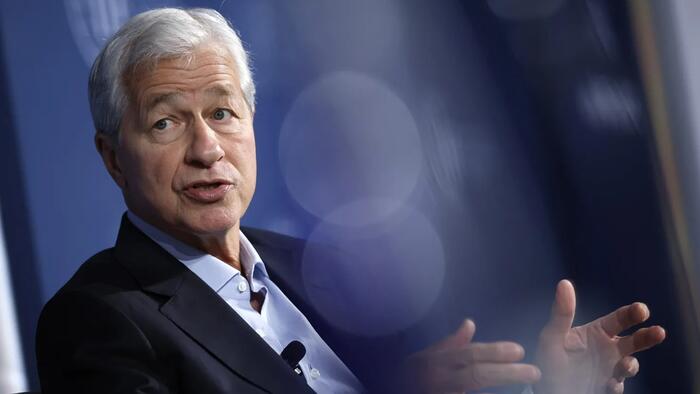


Authored by Michael Every via Rabobank,
Jamie Dimon of JP Morgan Chase --in Davos(!)-- yesterday stated US tariffs are an economic tool or an economic weapon and, “I would put in perspective: If it’s a little inflationary, but it’s good for national security, so be it. I mean, get over it.”
Exactly so. Our ‘grand macro strategy’ report on economic statecraft published after President Trump won re-election stressed that for political realists, not economic idealists, tariffs are always about national security, raising national savings and key related investments, and foreign policy goals; and both Trump’s and US history said we would be seeing a lot more of them.
As Bloomberg puts it, the current state of play is that Trump could potentially introduce sweeping changes to US and global trade policy, giving him a “loaded weapon” --of tariffs T+1-- as leverage for national security goals and new capital investment into the US. Or foreign policy goals.
Indeed, following the threat of a 1 February imposition of 25% tariffs on Mexico and Canada, and an additional 10% on China, all for national security reasons, President Trump has stated if Russian President Putin doesn’t accept a peace deal to end the Ukraine War, the US will impose tough sanctions, taxes, and tariffs on Russia’s energy sector which, by implication, might even extend to those buying from Russia or working with it: that could cover the EU (which, ridiculously from a statecraft perspective, still relies on Russian LNG); India; and China.
Our back of an envelope projection is that cutting off Russian LNG from Europe could raise TTF gas prices to €70-80/MWh.
Few in Europe would be saying, “Get over it,” and Europe’s key problem is that it can’t get over its structural geostrategic weakness. Cutting off Russian oil would see prices temporarily spike to $90-95 a barrel before OPEC picked up production to normalise things.
Yet as the economic statecraft report also stressed, in realpolitik things aren’t static.
If President Trump escalates to economic warfare to force President Putin to end physical warfare, Russia (and China, if its third-party neutral trading rights --also detailed in the report-- are penalised) can respond with their own economic statecraft, or the other two legs of grand strategy alongside it: political and military statecraft, to up the ante. That’s as the Financial Times says China is shipping sodium perchlorate to Iran to fuel ballistic missiles, which will see some in the US go ballistic; and a report claims two undersea cables connecting Taiwan to its outlying island of Matsu were mysteriously cut yesterday – something that seems to be happening a lot recently, and only on one side of the geopolitical fault-line.
For markets, given Trump and Putin both famously like to escalate to deescalate, and others can easily be dragged into this vortex, volatility remains the watchword.
That’s hard going to get past even if you get over the shock of tariffs being accepted by Jamie Dimon.
Indeed, as politics moves at dizzying speed within the US, prompting the Wall Street Journal to note that ‘CEOs Launch War Rooms, Hotlines to Cope With Trump’s Order Blitz’, in geopolitics, the same is true – just with real War Rooms.
Day ahead
Today has the ECB’s Escriva, Canadian retail sales, and US weekly jobless claims, then Eurozone consumer confidence.
